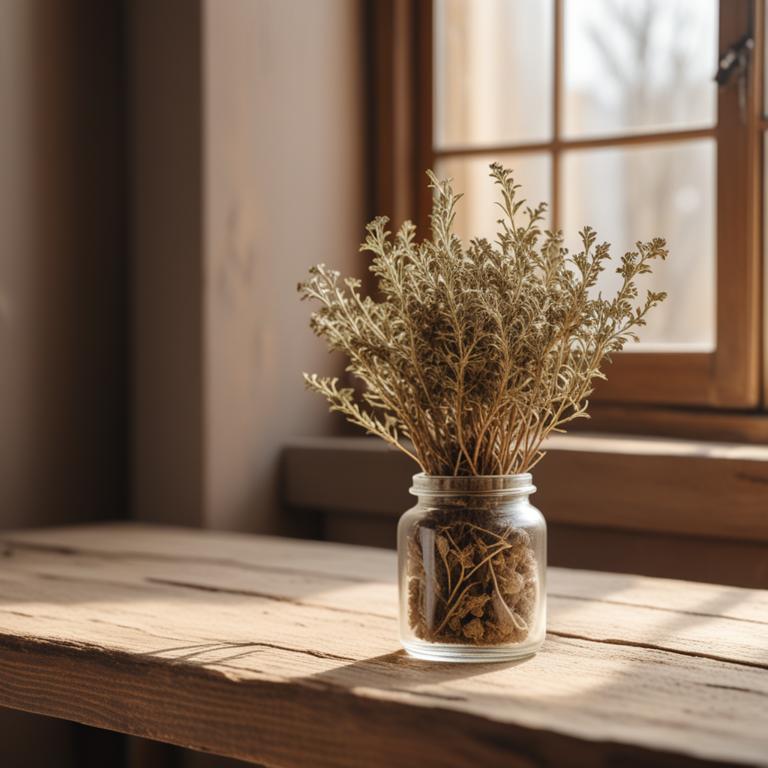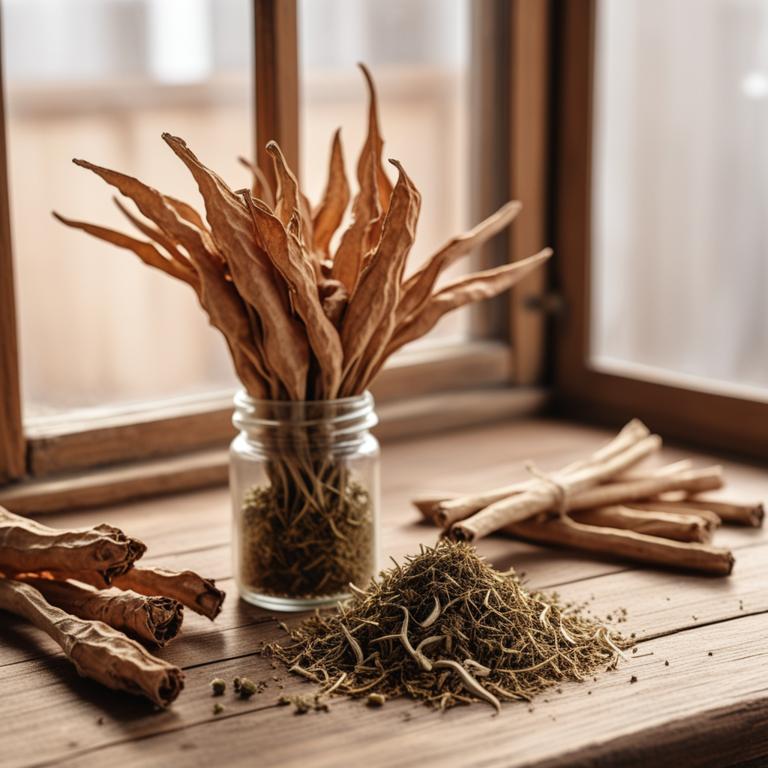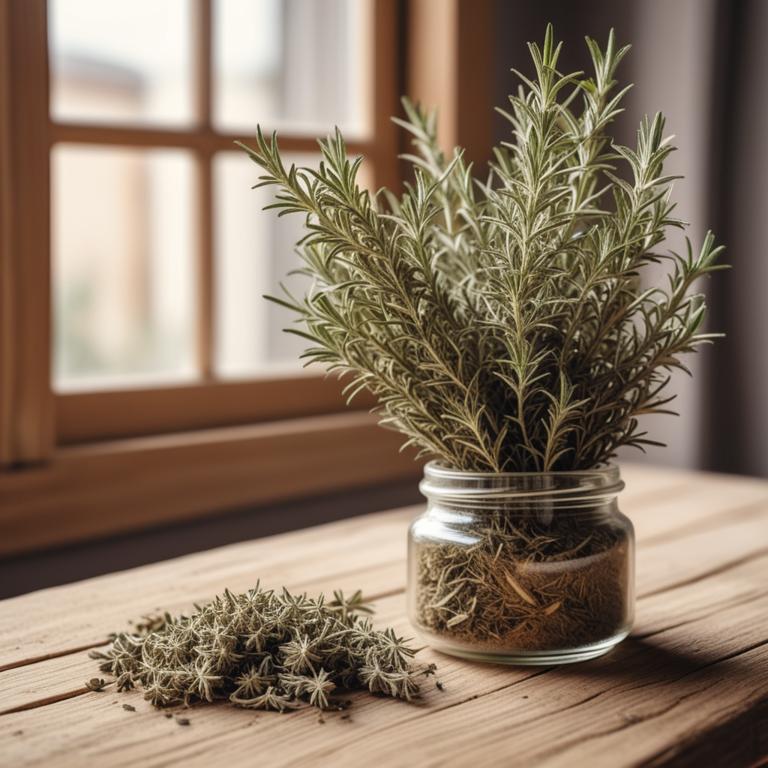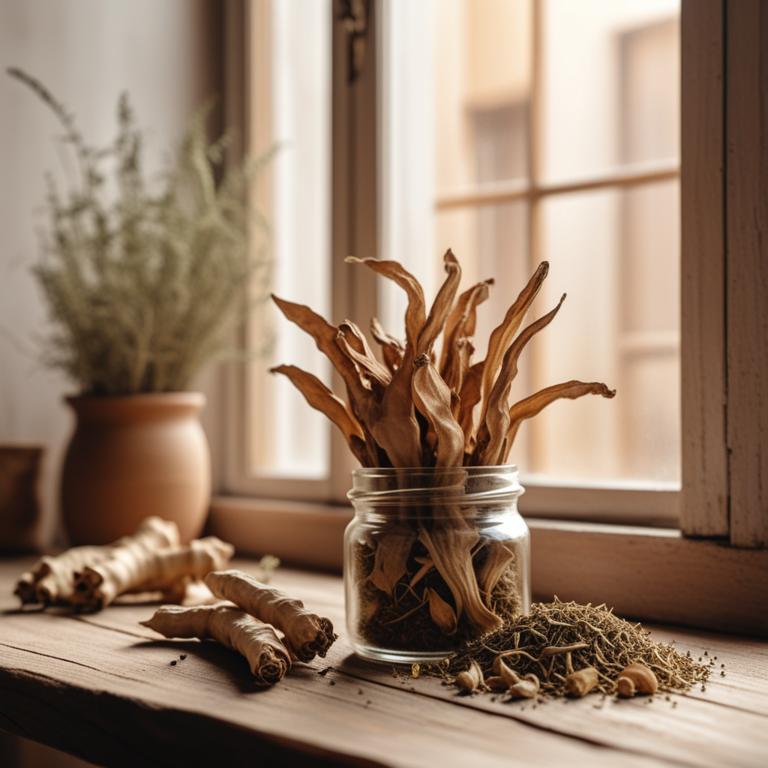Updated: Nov 30, 2024
8 Herbal Tinctures For Phlegm
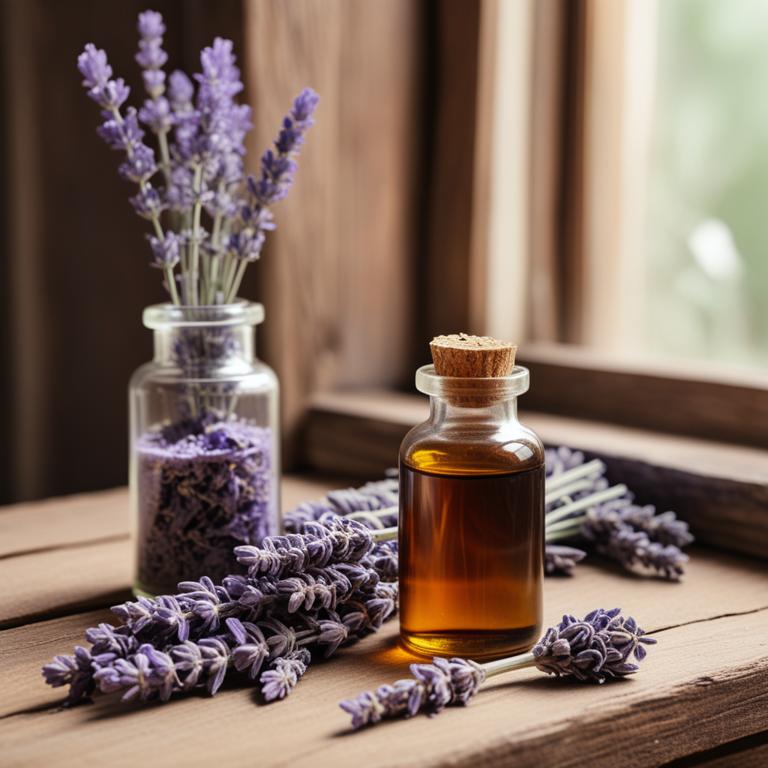
Herbal tinctures can be a great way to relieve phlegm and congestion.
When you drink herbal teas, the active compounds in the herbs can help break down and clear out mucus from your airways. This is because many herbs have natural expectorant properties, which means they help loosen and expel mucus. Eucalyptus globulus, for example, is known for its decongestant properties and can help relieve coughs and colds. It works by releasing compounds that thin and clear out mucus, making it easier to breathe. Ginger, or Zingiber officinale, is another herb that's often used to relieve congestion.
It has anti-inflammatory properties that can help reduce swelling in the nasal passages and sinuses, making it easier to breathe. Echinacea purpurea is also used to boost the immune system and fight off infections that can cause congestion. It works by stimulating the body's natural defenses and helping to prevent illnesses like the common cold and flu. When you drink herbal teas that contain these herbs, you can experience several benefits. For one, you can breathe more easily and feel more comfortable when you have a cold or flu. You may also experience a reduction in coughing and sneezing, which can be a relief if you have a sinus infection.
Additionally, these herbs can help to boost your immune system, making you less likely to get sick in the first place.
This article explains in detail what are the best herbal teas for phlegm and wh.
Also, you may be interested in...
Today Free Bonus!
The Ultimate Herb Drying Checklist
(For Long-Lasting Powerful Medicinal Effect)
How to easily dry herbs that don't mold and that keep their strong medicinal power for more than 1 year.
Table of Contents
1. Eucalyptus globulus
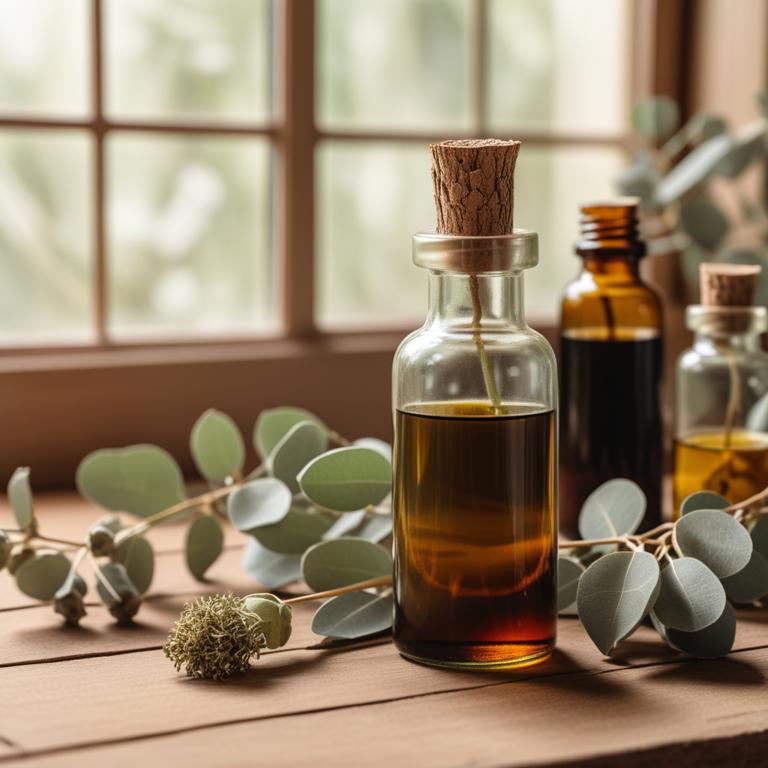
Eucalyptus globulus tinctures contains a high concentration of cineole, a bioactive compound that has decongestant and expectorant properties.
Cineole helps to break down and clear out excess mucus and phlegm from the airways, making it easier to breathe. The expectorant properties also help to thin and loosen phlegm, making it less sticky and easier to cough up. Another key compound in eucalyptus tinctures is eucalyptol, which has anti-inflammatory properties that can help to reduce swelling and congestion in the airways.
These properties work together to help alleviate phlegm and congestion, making eucalyptus globulus tinctures a popular natural remedy for respiratory issues.
- Gather 1 cup of fresh Eucalyptus globulus leaves and 2 cups of 95% vodka in a clean glass jar.
- Fill the jar with the Eucalyptus leaves, leaving 1 inch of space at the top.
- Pour the vodka over the leaves, making sure they are completely covered.
- Seal the jar and store it in a cool, dark place for 2-3 weeks, shaking the jar every day.
- Strain the liquid through a cheesecloth or a coffee filter into another clean glass jar, discarding the solids.
2. Zingiber officinale

Zingiber officinale tinctures contains bioactive constituents like gingerols and shogaols, which are responsible for its medicinal properties.
These compounds have anti-inflammatory and expectorant properties, making them effective in reducing phlegm production. The high concentration of zingiberene in ginger tinctures also helps to break down mucus and promote its expulsion from the body. Additionally, ginger's warming and drying properties help to reduce congestion and soothe the respiratory tract.
By incorporating ginger tinctures into your treatment plan, you can help alleviate phlegm-related symptoms and promote a healthier respiratory system.
- Gather 1 cup of fresh or dried Zingiber officinale roots. Clean and chop them into small pieces.
- Place 1 cup of chopped roots into a clean glass jar. Add 2 cups of 80% or higher vodka (as solvent).
- Seal the jar and shake it well. Store it in a cool, dark place for 2-3 weeks. Shake the jar every day.
- After 2-3 weeks, strain the liquid through a cheesecloth or a coffee filter into another clean glass jar. Discard the solids.
- Store the Zingiber officinale tincture in a cool, dark place. Use 20-30 drops, 2-3 times a day, for phlegm relief.
3. Echinacea purpurea

Echinacea purpurea tinctures contains the bioactive constituents alkylamides, caffeic acid derivatives, and glycoproteins, which are known for their anti-inflammatory and immune-boosting properties.
These compounds help to reduce the production of mucus and thin out phlegm, making it easier to expel. The anti-inflammatory properties of alkylamides and caffeic acid derivatives also help to reduce swelling in the airways and sinuses, allowing for better drainage of mucus. The glycoproteins in Echinacea purpurea tinctures have been shown to stimulate the activity of macrophages, which are white blood cells that help to break down and remove pathogens and debris from the body.
By reducing inflammation and boosting the immune system, Echinacea purpurea tinctures can help to alleviate symptoms of excess phlegm and promote a healthy respiratory system.
- Gather 1 cup of fresh Echinacea purpurea flowers and 2 cups of 80% vodka in a clean glass jar.
- Combine the Echinacea flowers and vodka in the jar. Make sure the flowers are completely covered by the vodka.
- Let the mixture sit in a cool, dark place for 2-3 weeks, shaking the jar every day.
- Strain the mixture through a cheesecloth or a coffee filter into another clean glass jar. Discard the solids.
- Store the tincture in a cool, dark place. Take 20-30 drops, 2-3 times a day to help with phlegm.
4. Glycyrrhiza glabra

Glycyrrhiza glabra tinctures contains glycyrrhizin, a powerful bioactive constituent that helps reduce phlegm.
Glycyrrhizin has anti-inflammatory properties, which help soothe and calm the mucous membranes, reducing excess mucus production. The tannins present in Glycyrrhiza glabra tinctures also have a drying effect on the respiratory tract, making it an effective remedy for excessive phlegm. Additionally, the saponins in the tincture help to break down and clear mucus, making it easier to expel.
By reducing inflammation and breaking down mucus, Glycyrrhiza glabra tinctures can help alleviate symptoms of phlegm.
- Gather 1 cup of dried Glycyrrhiza glabra root and 2 cups of 80% vodka in a clean glass container.
- Combine the dried root and vodka in the container. Stir well to coat the root.
- Seal the container and let it sit in a cool, dark place for 2 weeks. Shake the container every day.
- After 2 weeks, strain the mixture through a cheesecloth or a coffee filter into another container. Discard the solids.
- Transfer the tincture to a dark glass bottle and store it in a cool, dark place. Use 20-30 drops, 2-3 times a day, as needed.
5. Thymus vulgaris
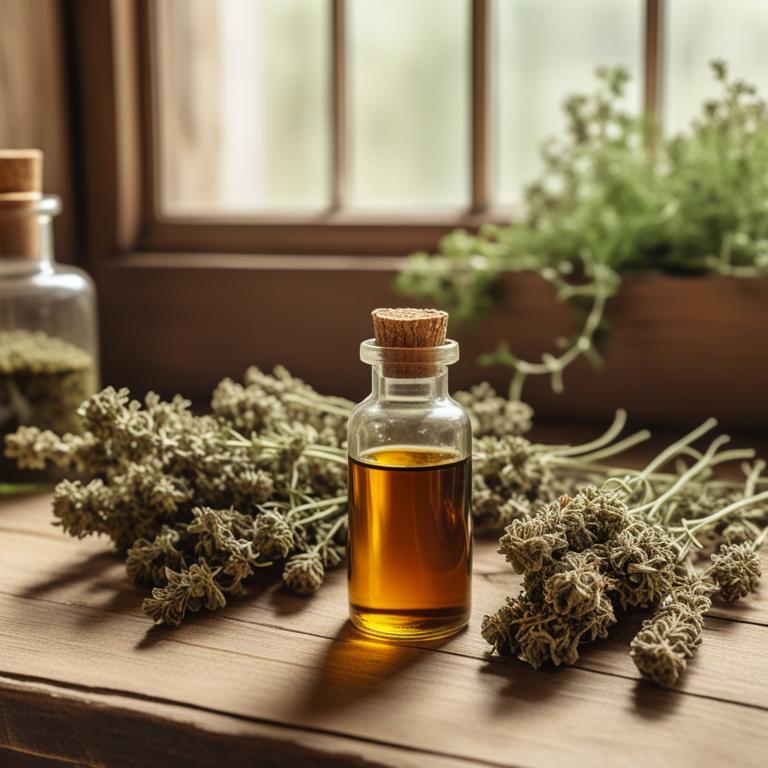
Thymus vulgaris tinctures contains thymol, carvacrol, and rosmarinic acid as its bioactive constituents.
Thymol is a natural decongestant that helps break down and expel phlegm from the respiratory system. Carvacrol has antimicrobial properties, which reduce inflammation and fight off infections that can cause phlegm buildup. Rosmarinic acid is an antioxidant that helps soothe and calm the mucous membranes, reducing congestion and coughing.
By combining these properties, Thymus vulgaris tinctures can help alleviate phlegm-related respiratory issues by promoting healthy mucus balance and reducing inflammation.
- Gather 1 cup of Thymus vulgaris leaves and flowers, and 2 cups of 80% vodka in a clean glass jar.
- Add the Thymus vulgaris leaves and flowers to the jar and fill the jar with vodka, making sure the herbs are completely covered.
- Seal the jar and store it in a cool, dark place for 2-3 weeks, shaking the jar every day.
- After 2-3 weeks, strain the liquid through a cheesecloth or a coffee filter into another glass jar, discarding the solids.
- Store the Thymus vulgaris tincture in the fridge and take 20-30 drops, 2-3 times a day, as needed to help with phlegm.
6. Rosmarinus officinalis
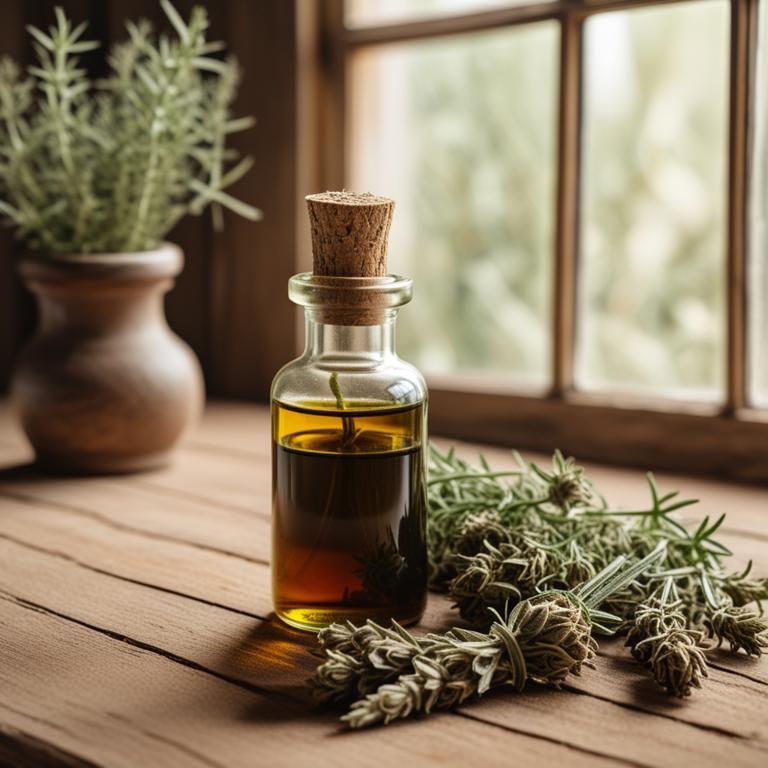
Rosmarinus officinalis tinctures contains carnosic acid, camphor, and borneol as its primary bioactive constituents.
These compounds have antiseptic, anti-inflammatory, and expectorant properties that help to relieve phlegm. The antiseptic properties of carnosic acid help to combat bacterial infections that can contribute to phlegm buildup. The anti-inflammatory properties of camphor reduce swelling and ease congestion in the respiratory tract, making it easier to expel phlegm.
The expectorant properties of borneol help to thin and loosen phlegm, making it easier to cough up and clear the airways.
- Gather 1 cup of fresh Rosmarinus officinalis leaves and 2 cups of 80% vodka in clean glass containers.
- Chop the Rosmarinus officinalis leaves and place them in a clean glass jar.
- Pour 2 cups of 80% vodka over the chopped leaves, making sure they are completely covered.
- Seal the jar and let it sit in a cool, dark place for 2-3 weeks, shaking the jar every day.
- After 2-3 weeks, strain the liquid through a cheesecloth or a coffee filter into another clean glass container. Discard the solids and store the tincture in a cool, dark place.
7. Mentha x piperita
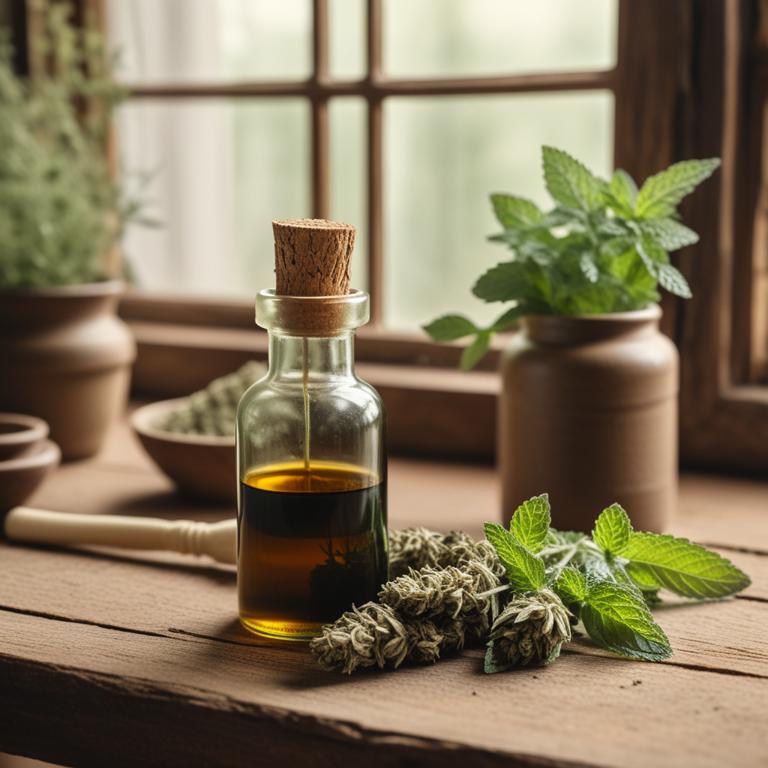
Mentha x piperita tinctures contains the bioactive constituents menthol and menthone.
These compounds have decongestant and expectorant properties, which can help loosen and clear out excess phlegm from the airways. Menthol also has anti-inflammatory properties, reducing swelling and congestion in the nose and sinuses. The expectorant properties of menthone help thin out mucus, making it easier to cough up and clear out the body.
By using Mentha x piperita tinctures, you can help reduce phlegm and promote easier breathing.
- Gather 1 cup of fresh Mentha x piperita leaves and 2 cups of vodka in a clean glass jar.
- Place the mint leaves in the jar and cover them with vodka, making sure they are completely submerged.
- Close the jar and store it in a cool, dark place for 2-3 weeks, shaking the jar every day.
- After 2-3 weeks, strain the liquid through a cheesecloth or a coffee filter into another clean glass container, discarding the solids.
- Label the container and store the tincture in a cool, dark place. Take 10-20 drops of the tincture as needed to help relieve phlegm.
8. Lavandula angustifolia

Lavandula angustifolia tinctures contains linalool and linalyl acetate, which are its main bioactive constituents.
These compounds have expectorant properties that help loosen and clear mucus from the airways, making it easier to cough up phlegm. Linalool also has anti-inflammatory properties, which can reduce swelling in the throat and sinuses, allowing phlegm to drain more easily. The antispasmodic properties of linalyl acetate can help calm coughing spasms and make breathing easier.
By combining these properties, Lavandula angustifolia tinctures may be helpful in relieving phlegm congestion.
- Gather 1 cup of dried Lavandula angustifolia flowers, 2 cups of 80-proof vodka, and a clean glass jar.
- Combine the dried flowers and vodka in the glass jar. Stir well to mix.
- Seal the jar and store it in a cool, dark place for 2-3 weeks, shaking the jar every day.
- After 2-3 weeks, strain the mixture through a cheesecloth or a coffee filter into another clean glass jar. Discard the solids.
- Label the jar with the date and contents. Store the tincture in a cool, dark place. Use 20-30 drops, 3-4 times a day, to help with phlegm.
FAQ
Can drinking herbal tea prevent phlegm from forming?
Drinking herbal tea may help prevent phlegm from forming.
Some teas, like thyme and eucalyptus, have properties that can break down mucus. They can also soothe a sore throat and open up airways, making it easier to breathe.
This can help keep your respiratory system healthy and clear.
Is it safe to consume herbal teas for phlegm every day?
Consuming herbal teas for phlegm every day can be safe, but it depends on the type of tea and your individual body.
Some teas, like thyme or eucalyptus, are known for their decongestant properties. However, if you have underlying health issues or allergies, be cautious.
Also, be mindful of how your body reacts to the tea over time.
How long does it take for herbal teas to show results in phlegm?
Herbal teas can help reduce phlegm, but it takes time.
Some people notice a difference within a few days, while others see results in a week or two.
It's like when you start a new exercise routine, your body needs time to adjust and show improvements.
Related Articles
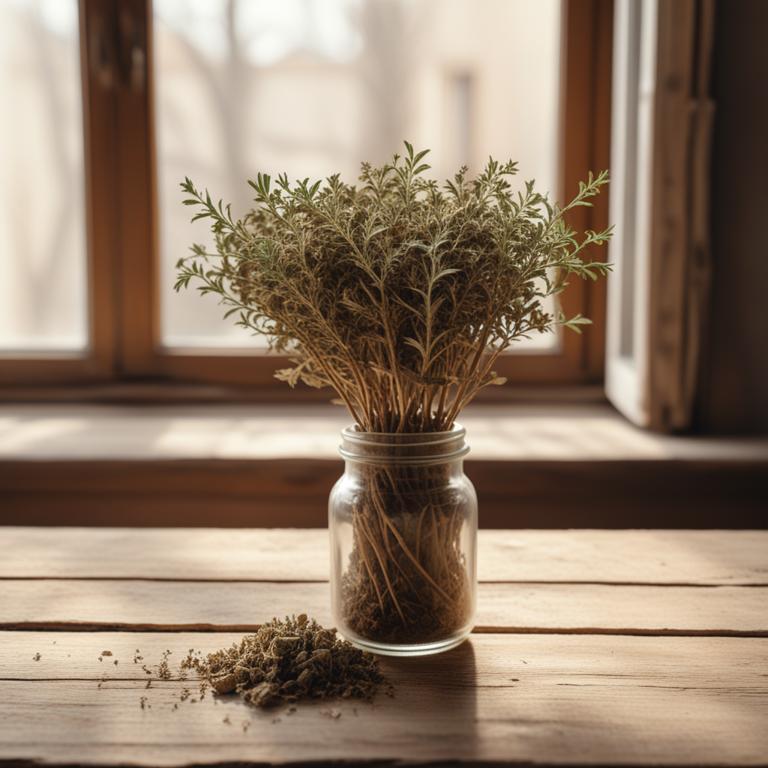
Banish Dry Throat: Exploring Medicinal Herbs and Herbal Preparations for a Soothing Solution
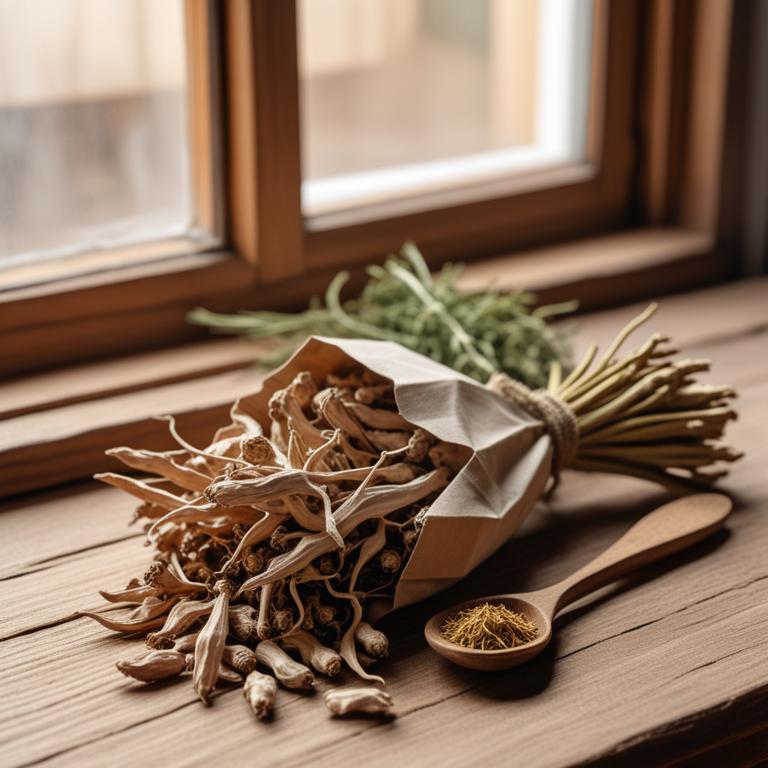
Causes, Herbal Remedies, and Medicinal Preparations for Nasal Congestion
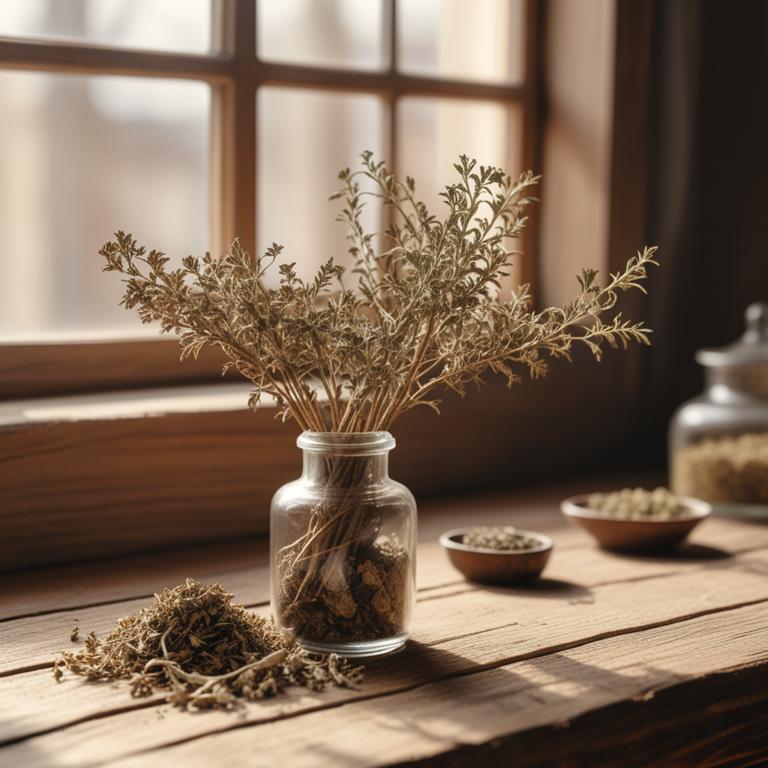
Bronchitis: The Causes, Medicinal Herbs, and Homeopathic Preparations
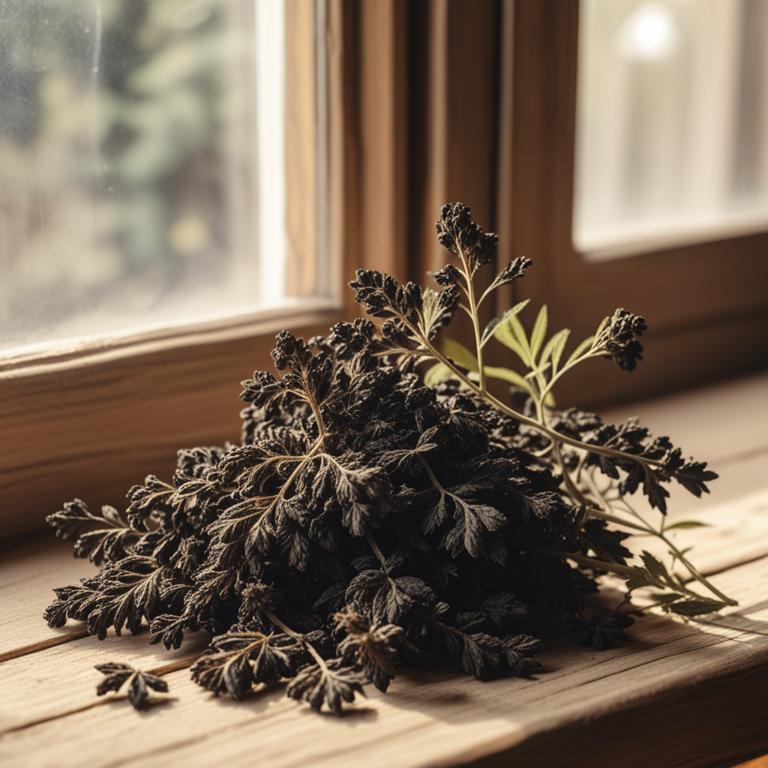
Cold Relief: Causes, Medicinal Herbs, and Herbal Remedies
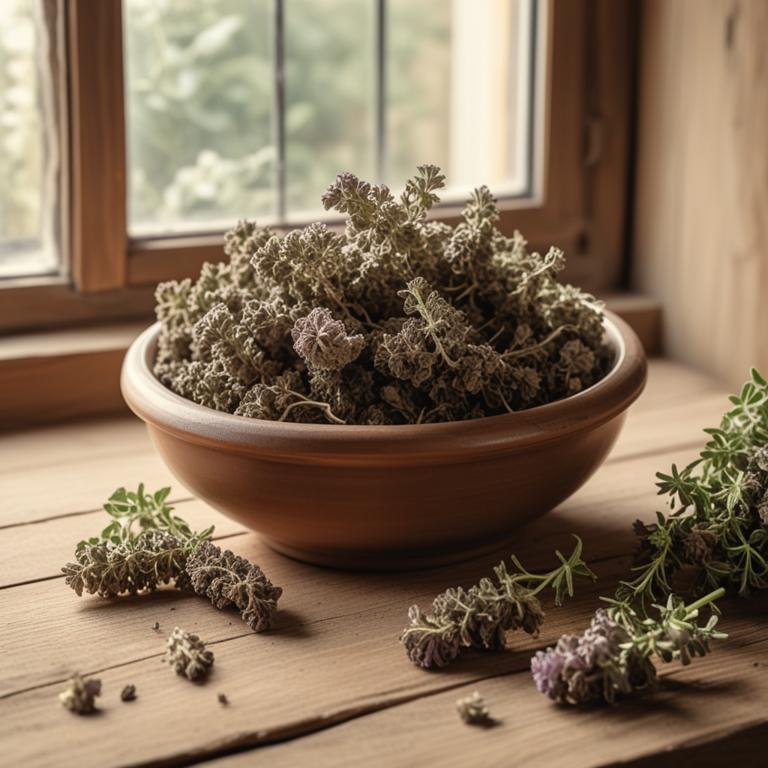
Mucus in Throat - Understanding the Causes and Herbal Cures
